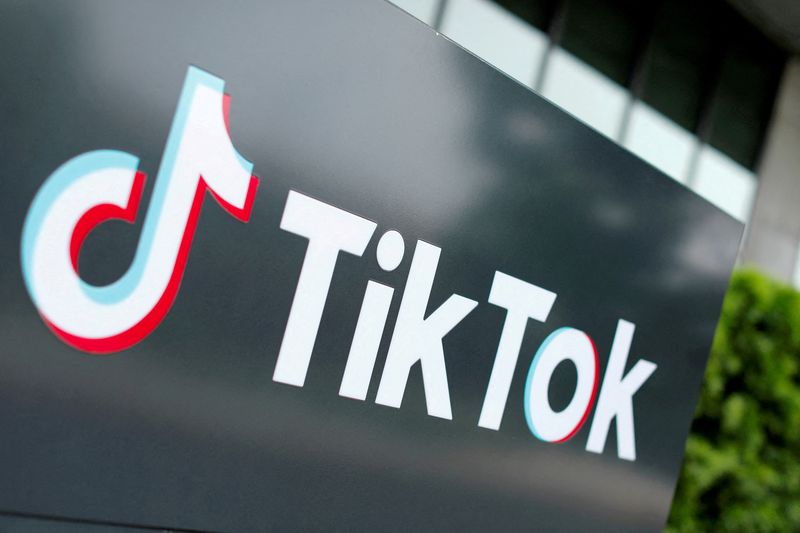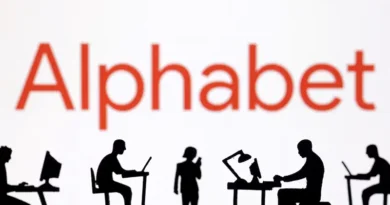US Appeals Court Confirms Law Requiring TikTok’s Sale – One America News Network
December 6, 2024 – 8:16 AM PST

WASHINGTON (Reuters) – On Friday, a federal appeals court in the U.S. affirmed a law mandating that ByteDance, the Chinese company behind TikTok, divest its widely used short video app in the United States by early next year or face a potential ban.
Advertisement
This ruling marks a significant victory for the Justice Department and critics of the Chinese-owned platform, while delivering a setback for ByteDance. The decision heightens the likelihood of an unprecedented ban on a social media application utilized by 170 million Americans in just six weeks.
ByteDance and TikTok are expected to appeal the ruling to the Supreme Court or a full panel of the appeals court.
The appeals court stated that the legislation “was the result of extensive, bipartisan efforts by Congress and successive administrations. It was meticulously designed to address control by a foreign adversary and is part of a broader initiative to combat a well-documented national security threat posed by the PRC (People’s Republic of China).”
Judges Sri Srinivasan, Neomi Rao, and Douglas Ginsburg reviewed the legal challenges posed by TikTok and its users against the law requiring ByteDance to sell or divest its U.S. assets by January 19 to avoid a ban.
Unless overturned by the Supreme Court, this ruling leaves TikTok’s future in the hands of President Joe Biden, who may grant a 90-day extension of the January 19 deadline to facilitate a sale, and then to President-elect Donald Trump, who assumes office on January 20. However, it remains uncertain whether ByteDance could prove that it has made significant progress towards a necessary divestiture to justify the extension.
Trump, who attempted to ban TikTok during his first term in 2020 without success, indicated before the recent presidential election that he would not pursue a ban on the app.
Immediate responses from the Justice Department and TikTok regarding the ruling were not provided.
The court acknowledged that its ruling would likely lead to a TikTok ban on January 19 unless Biden permits an extension.
“As a result, millions of TikTok users will have to seek alternative platforms for communication,” the court stated, citing China’s “hybrid commercial threat to U.S. national security,” not stemming from the U.S. Government, which has engaged with TikTok over several years to explore alternative solutions.
The decision was authored by Judge Ginsburg, appointed by President Ronald Reagan, and supported by Judge Rao, who was appointed by Trump, and Srinivasan, who was appointed by President Barack Obama.
The Justice Department contends that under Chinese control, TikTok presents a significant national security risk because of its access to extensive personal data of Americans, claiming that China could surreptitiously influence the information that users receive through TikTok.
TikTok and ByteDance assert that the law is unconstitutional and infringes on First Amendment rights, describing it as “a radical shift from the United States’ tradition of supporting an open Internet.”
Backed by investors like Sequoia Capital, Susquehanna International Group, KKR & Co (KKR.N), and General Atlantic, ByteDance was valued at $268 billion in December 2023 when it offered to repurchase approximately $5 billion worth of shares from investors, as reported by Reuters at that time.
The legislation prohibits app stores such as those operated by Apple (AAPL.O) and Alphabet’s (GOOGL.O) Google from making TikTok available, and it restricts internet hosting services from supporting TikTok unless ByteDance divests the app by the specified deadline.
U.S. officials have raised concerns that TikTok’s management is subject to the Chinese government, which could compel the company to disclose U.S. user data.
TikTok has refuted claims that it currently shares or would ever share data from U.S. users, accusing American lawmakers in the lawsuit of promoting “speculative” anxieties.
In a concurring opinion, Judge Srinivasan recognized that the decision would have significant repercussions, stating, “170 million Americans utilize TikTok for creative expression and interaction with others and the global community. Yet, owing in part to the platform’s extensive reach, Congress and multiple Presidents determined that it is critical to divest it from (China’s) influence to safeguard our national security.”
He further commented that “the record indicates that Congress’s decision was thoughtful, aligned with longstanding regulatory practices, and free of an institutional intent to suppress specific messages or ideas, thus we cannot disregard it.”
Reporting by David Shepardson, Chris Sanders, and Mike Scarcella; Editing by Marguerita Choy and Jonathan Oatis
Advertisements below



